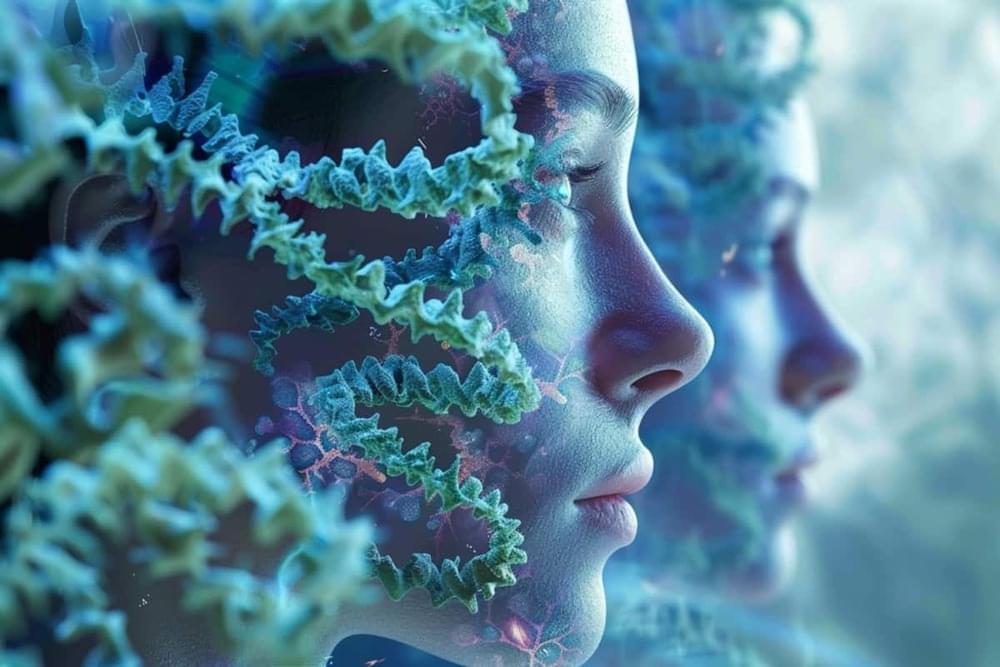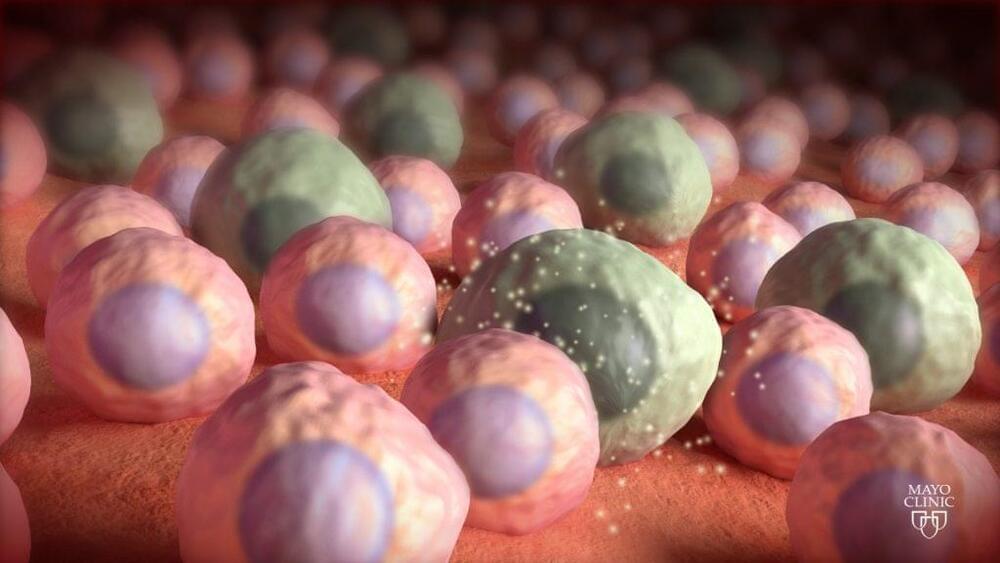The Earth-directed X-flare action was captured by NASA’s Solar Dynamics Observatory.



Summary: A new study reveals that the epigenetic state of neurons determines their role in memory formation. Neurons with open chromatin states are more likely to be recruited into memory traces, showing higher electrical activity during learning.
Researchers demonstrated that manipulating these epigenetic states in mice can enhance or impair learning. This discovery shifts the focus from synaptic plasticity to nuclear processes, offering potential new avenues for treating cognitive disorders.
NVIDIA workflows connect real and synthetic data
Training foundation models for humanoid and other robots typically requires large amounts of data, noted NVIDIA. Teleoperation is one way to capture human demonstration data, but it can be expensive and time-consuming, it said.
NVIDIA announced a workflow that uses AI and Omniverse to enable developers to train robots with smaller amounts of data than previously required. First, developers use Apple Vision Pro to capture a relatively small number of teleoperated demonstrations.

A team of astrophysicists led by Caltech has managed for the first time to simulate the journey of primordial gas dating from the early universe to the stage at which it becomes swept up in a disk of material fueling a single supermassive black hole. The new computer simulation upends ideas about such disks that astronomers have held since the 1970s and paves the way for new discoveries about how black holes and galaxies grow and evolve.
“Our new simulation marks the culmination of several years of work from two large collaborations started here at Caltech,” says Phil Hopkins, the Ira S. Bowen Professor of Theoretical Astrophysics.
The first collaboration, nicknamed has focused on the larger scales in the universe, studying questions such as how galaxies form and what happens when galaxies collide. The other, dubbed STARFORGE, was designed to examine much smaller scales, including how stars form in individual clouds of gas.

Drugs that selectively kill senescent cells may benefit otherwise healthy older women but are not a “one-size-fits-all” remedy, Mayo Clinic researchers have found. Specifically, these drugs may only benefit people with a high number of senescent cells, according to findings publishing July 2 in Nature Medicine.
Senescent cells are malfunctioning cells in the body that lapse into a state of dormancy. These cells, also known as “zombie cells,” can’t divide but can drive chronic inflammation and tissue dysfunction linked to aging and chronic diseases. Senolytic drugs clear tissues of senescent cells.
In the 20-week, phase 2 randomized controlled trial, 60 healthy women past menopause intermittently received a senolytic combination composed of FDA-approved dasatinib and quercetin, a natural product found in some foods. It is the first randomized controlled trial of intermittent senolytic treatment in healthy aging women, and the investigators used bone metabolism as a marker for efficacy.
We’re using AI and Google Maps driving trends to optimize traffic light patterns and improve traffic flow. Stop-and-go traffic in urban areas causes 29 times more emissions than on open roads. Researchers at Google are partnering with cities around the globe, from Rio to Jakarta. So far, local governments have saved fuel and lowered emissions for nearly 30 million car rides every month. Learn more about this research at: https://g.co/research/greenlight.
If you are a city representative or traffic engineer and are interested in joining the waiting list, please complete this form: https://docs.google.com/forms/d/e/1FA…
Tweet with us on X: / google \r.
Follow us on Instagram: / google \r.
Join us on Facebook: / google.

Large language models may enable real-time communication with extraterrestrial civilizations despite the vast distances between stars. We need to start thinking about what to tell them about us.
Patreon: https://www.patreon.com/seanmcarrollBlog post with audio player, show notes, and transcript: https://www.preposterousuniverse.com/podcast/2024/07/29…
Paracinsistent logic.
Share your videos with friends, family, and the world.

Unlike classical computers, which use bits to process information as either 0s or 1s, quantum computers use quantum bits, also known as qubits, which can represent and process both 0 and 1 simultaneously thanks to a quantum property called superposition. This fundamental difference gives quantum computers the potential to solve some complex problems much more efficiently than classical computers.
INL researcher Ernesto Galvão, in collaboration with Sapienza Università di Roma (Rome) and Istituto di Fotonica e Nanotecnologie (Milan), recently published a groundbreaking study in the journal Science Advances (“Polarization-encoded photonic quantum-to-quantum Bernoulli factory based on a quantum dot source”), where they describe a new set-up for a quantum-to-quantum Bernoulli factory.
A Bernoulli factory is a method to manipulate randomness, using as inputs random coin flips with a certain probability distribution, and outputting coin flips with a different, desired distribution.